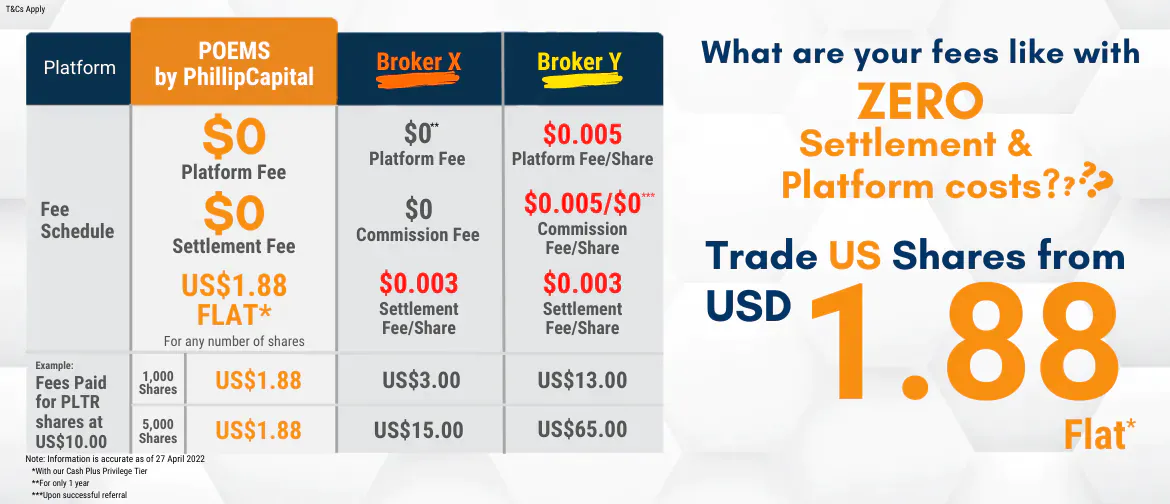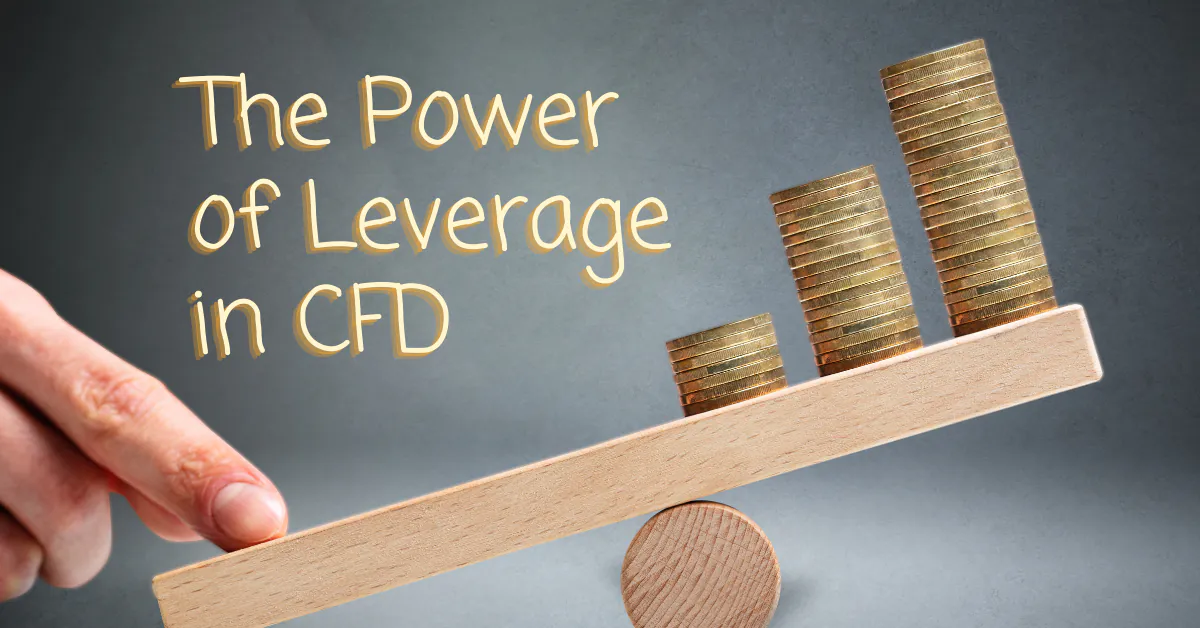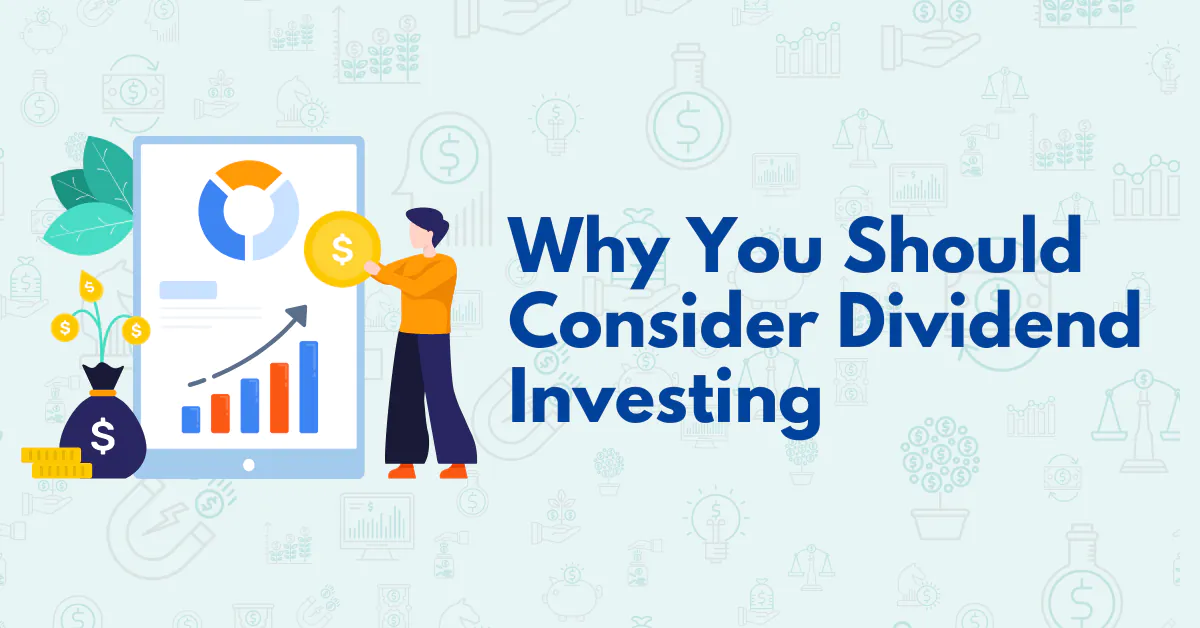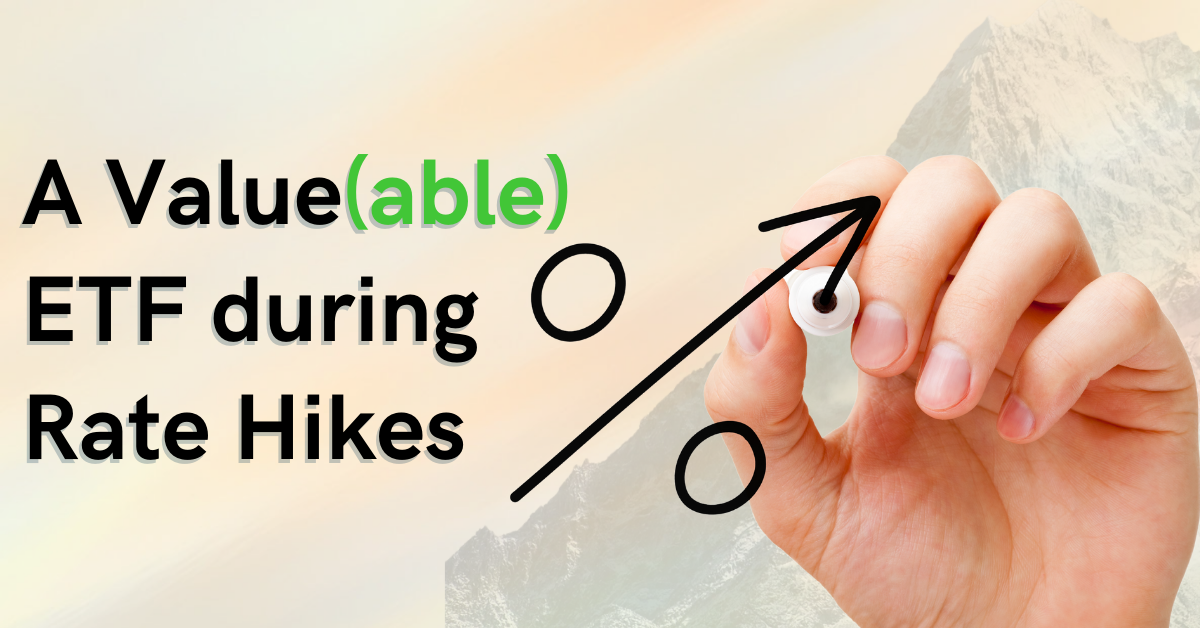Forex Trading Myths Debunked
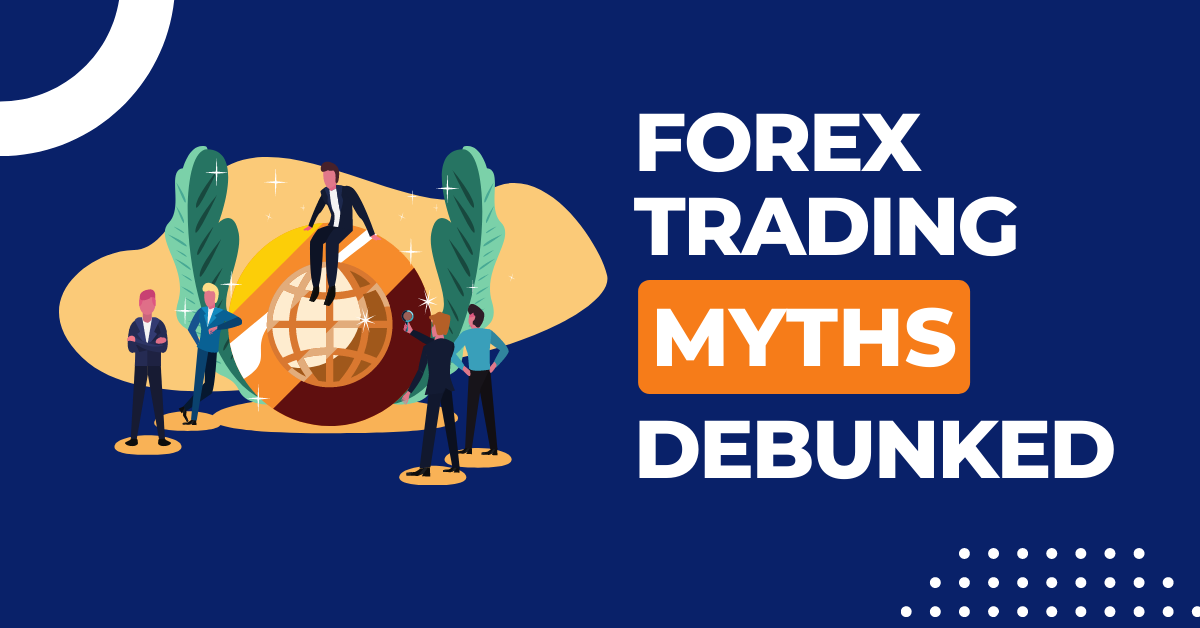
Kenneth Tan, Head of FX CFD
Kenneth Tan graduated from Nanyang Business School with a Master of Science in Financial Engineering. Having worked as a spot and NDF trader for a top bank in Japan and an option dealer with one of France’s top five banking groups, Kenneth has devoted more than 15 years to developing the FX business and strongly believes that investing in FX instruments is essential to every investor. He enjoys learning about how automated strategies can enhance trading experience for clients.
Forex trading has built a reputation for being many things. Some believe that forex trading will help them reap a fortune in a short period of time, while others think it’s unnecessarily risky as compared to the other investment instruments. Which of these two is based on fact? Here are the most common misconceptions surrounding forex trading today.
“Forex trading is dangerous”
The most common misunderstanding about forex trading is that it is unnecessarily risky, whereas trading of shares or indices is “safer”. We would like to address misconceptions about high volatility and large losses. In explaining volatility, we use the 100-day Average True Range (ATR) of a trading instrument. A single day’s true range is defined as the largest difference between:
- the current maximum and minimum prices (high and low);
- the previous closing and current maximum prices (in cases where price gapped up);
- the previous closing and current minimum prices (in cases where price gapped down).
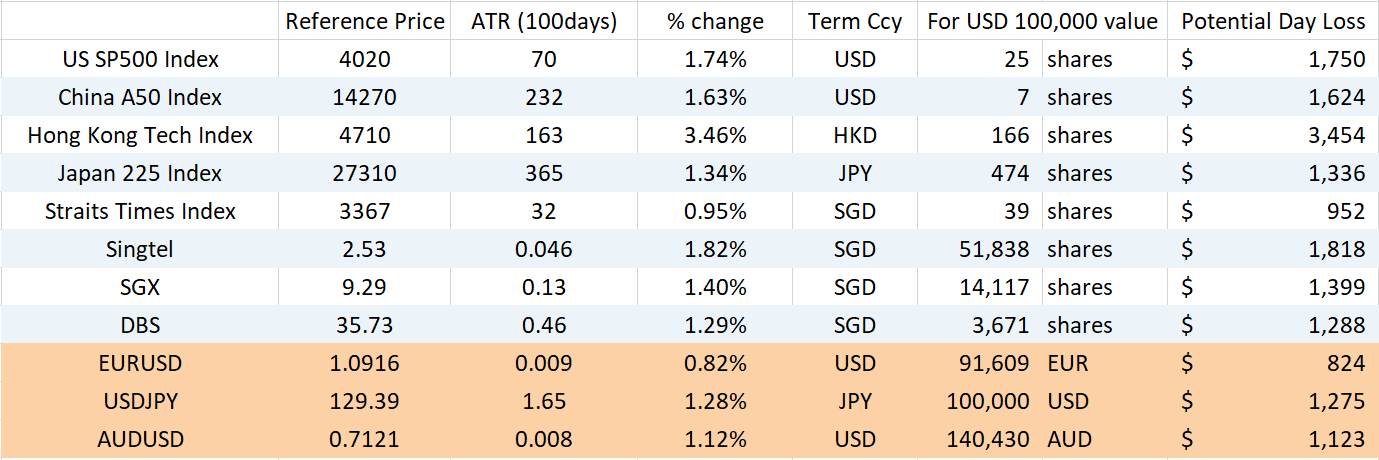
As observed, the percentage change in prices based on 100-day ATR appears to be lower for forex pairs as compared to popular indices and shares. This is then translated into potential trading losses in a day based on the same contractual value traded of US$100,000 value, across the various trading instruments. The potential day loss for forex pairs are mostly lower with the lower volatility observed. These findings are echoed by other popular financial bloggers using other volatility measures.
So, how did the perception of forex trading as “dangerous” come about? The advantage of high leverage offered for trading forex has commonly been misused by inexperienced traders who do not follow a disciplined approach to trading, resulting in amplified losses instead of achieving “capital efficiency”.
“High leverage instrument = risky”
All investments involve some type of risk(s), forex trading is no different. Forex trading might have been given the bad reputation as a particularly volatile and risky business because of the possible involvement of leveraged trading. This is not true. Leverage is not part of the function for risk, but rather for money management. Yes, forex trading offers one of the highest possible leverage. This was supposed to be an advantage to traders as it means less capital is required for placement as collateral (known as margin) with their brokers, allowing excess capital to be maximised with other forms of investment.
How much leverage should an investor use? The way to restrict the utilised leverage level is by trading smaller lot sizes or amounts, until you are sufficiently comfortable with the trade positions’ size of profit and loss. The size of each trade position should be aligned with the trading plan outlined that considers the maximum drawdown on the capital amount you are willing to take for each position.
“Forex markets are unregulated”
Forex is the world’s largest, most liquid and active financial marketplace. The average daily forex transaction is now estimated at around US$7.5 trillion, according to the Triennial Central Bank Survey of FX and OTC derivatives markets (2022). When we narrow down to the FX “spot” market specifically, which is the part of the currency market that is relevant to most forex traders, it is at US$2.1 trillion per day. Comparatively, the average global trading volume of the stock market is only at US$245 billion per day. Liquidity could indicate a variety of notions, including having more buyers and sellers participating in the market, better price discovery, fewer situations of price gaps, and the ability for the trading instrument to be bought and sold without causing a significant change in its exchange rate. Liquidity therefore makes manipulation of prices more difficult. In addition, forex is a global marketplace primarily influenced by macro-economic news, as compared to stocks that have to take company-specific news into consideration, where the latter could be privy information to certain investors only.
“The forex market is manipulated”
Forex is the world’s largest, most liquid and active financial marketplace. The average daily forex transaction is now estimated at around US$7.5 trillion, according to the Triennial Central Bank Survey of FX and OTC derivatives markets (2022). When we narrow down to the FX “spot” market specifically, which is the part of the currency market that is relevant to most forex traders, it is at US$2.1 trillion per day. Comparatively, the average global trading volume of the stock market is only at US$245 billion per day. Liquidity could indicate a variety of notions, including having more buyers and sellers participating in the market, better price discovery, fewer situations of price gaps, and the ability for the trading instrument to be bought and sold without causing a significant change in its exchange rate. Liquidity therefore makes manipulation of prices more difficult. In addition, forex is a global marketplace primarily influenced by macro-economic news, as compared to stocks that have to take company-specific news into consideration, where the latter could be privy information to certain investors only.
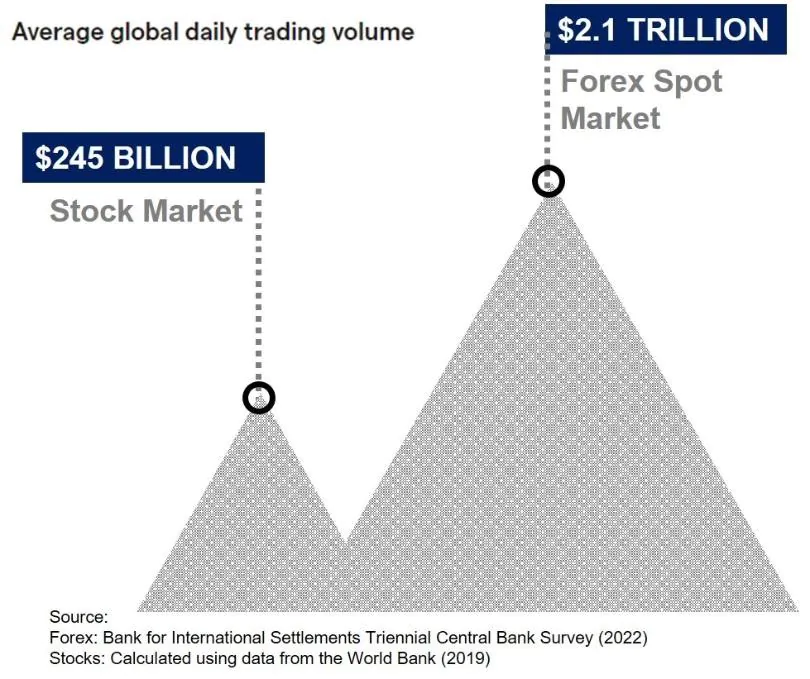
“Trading Forex incurs the highest transactional cost”
When comparing transactional cost, it is essential to understand the various fees that could be imposed based on the instrument traded. These include commissions, bid-ask spread, financing charges, platform fees and market data fees. Brokers usually do not pose forex traders further costs and compare themselves on simply the bid-ask spread to be competitive. The bid-ask spread represents transactional cost(s) as it is a turnaround cost to an investor who wishes to enter a buy at the Ask price (where a seller is willing to sell), and exit via a sell at the Bid price (where a buyer is willing to buy), even without any changes to the asset price. Comparing the bid-ask spread as a representation of transactional cost solely, we illustrate this with typical spreads with PhillipCapital’s POEMS platform.

Not surprisingly, trading forex incurs one of the least transactional costs due to its extremely competitive bid-ask spread, across various trading instruments. While there could be further costs involved in other instruments, PhillipCapital offers forex trading at zero commission with no financing charges, no platform fees, and no added market data fees. PhillipCapital offers a wide range of forex (FX) CFDs to trade from, allowing traders to diversify their portfolio with the forex market. You can find the list of FX CFD currency pairs available here.
To sum up, the size and depth of the forex market makes it the ideal trading market; massive liquidity makes it easy for traders to sell and buy currencies. This might be the reason why traders from different asset classes are turning to the forex market. With higher leverage offered, it is important for investors to follow a disciplined approach to money management.
How to get started with POEMS
As the pioneer of Singapore’s online trading, POEMS’s award-winning suite of trading platforms offers investors and traders more than 40,000 financial products across global exchanges.
Explore an array of US shares with brokerage fees as low as US$1.88 flat* when you open a Cash Plus Account with us today. Find out more here (terms and conditions apply).
We hope that you have found value reading this article. If you do not have a POEMS account, you may visit here to open one with us today.
Lastly, investing in a community is much more fun. You will get to interact with us and other seasoned investors who are generous in sharing their experience and expertise.
In this community, you will be exposed to quality educational materials, stock analysis to help you apply the concepts, unwrap the mindset of seasoned investors, and even post questions.
We look forward to sharing more insights with you in our growing and enthusiastic Telegram community. Join us now!
For enquiries, please email us at cfd@phillip.com.sg.
Promotions

POEMS CFD MT5 Welcome Gifts and Bundles
From 1 March 2023 to 30 June 2023 (both dates inclusive), open a POEMS CFD MT5 account and trade with us to receive Apple AirPods, Trading Credits and Grab Vouchers.
This promotion is valid to all Phillip Securities Pte Ltd (PSPL) customers who have not opened a POEMS CFD MT5 Account.
*T&Cs Apply.
For more information, click here.
References
[1]http://www.livingfromtrading.com/blog/trading-forex-vs-stocks-vs-indices/
[2]https://the5ers.com/top-10-forex-trading-myths-and-misconceptions/
[3]https://blog.deriv.com/blog/posts/debunking-forex-trading-myths/
[4]https://www.babypips.com/learn/forex/forex-vs-stocks
[5]https://www.forextraders.com/forex-education/forex-strategy/assessing-forex-trading-risk-with-volatility/
[6]https://www.bis.org/statistics/rpfx22.htm
[7] https://data.worldbank.org/indicator/CM.MKT.TRAD.CD
More Articles
The Power of Leverage in CFD
What is leverage? Read our article to find out more about the different uses of leverage through the use of Contract for Differences (CFDs) for both traders and long-term investors.
Why You Should Consider Dividend Investing
Have you tried dividend investing? Learn more about why you should consider dividend investing!
A Value(able) ETF During Rate Hikes
Interested in buying valuable ETFs? Read on our article to find out more!
Disclaimer
This material is provided to you for general information only and does not constitute a recommendation, an offer or solicitation to buy or sell the investment product mentioned. It does not have any regard to your specific investment objectives, financial situation or any of your particular needs. Accordingly, no warranty whatsoever is given and not liability whatsoever is accepted for any loss arising whether directly or indirectly as a result of your acting based on this information.
Investments are subject to investment risks. The risk of loss in leveraged trading can be substantial. You may sustain losses in excess of your initial funds and may be called upon to deposit additional margin funds at short notice. If the required funds are not provided within the prescribed time, your positions may be liquidated. The resulting deficits in your account are subject to penalty charges. The value of investments denominated in foreign currencies may diminish or increase due to changes in the rates of exchange. You should also be aware of the commissions and finance costs involved in trading leveraged products. This product may not be suitable for clients whose investment objective is preservation of capital and/or whose risk tolerance is low. Clients are advised to understand the nature and risks involved in margin trading.
You may wish to obtain advice from a qualified financial adviser, pursuant to a separate engagement, before making a commitment to purchase any of the investment products mentioned herein. In the event that you choose not to obtain advice from a qualified financial adviser, you should assess and consider whether the investment product is suitable for you before proceeding to invest and we do not offer any advice in this regard unless mandated to do so by way of a separate engagement. You are advised to read the trading account Terms & Conditions and Risk Disclosure Statement (available online at www.poems.com.sg) before trading in this product.
Any CFD offered is not approved or endorsed by the issuer or originator of the underlying securities and the issuer or originator is not privy to the CFD contract. This advertisement has not been reviewed by the Monetary Authority of Singapore (MAS).





